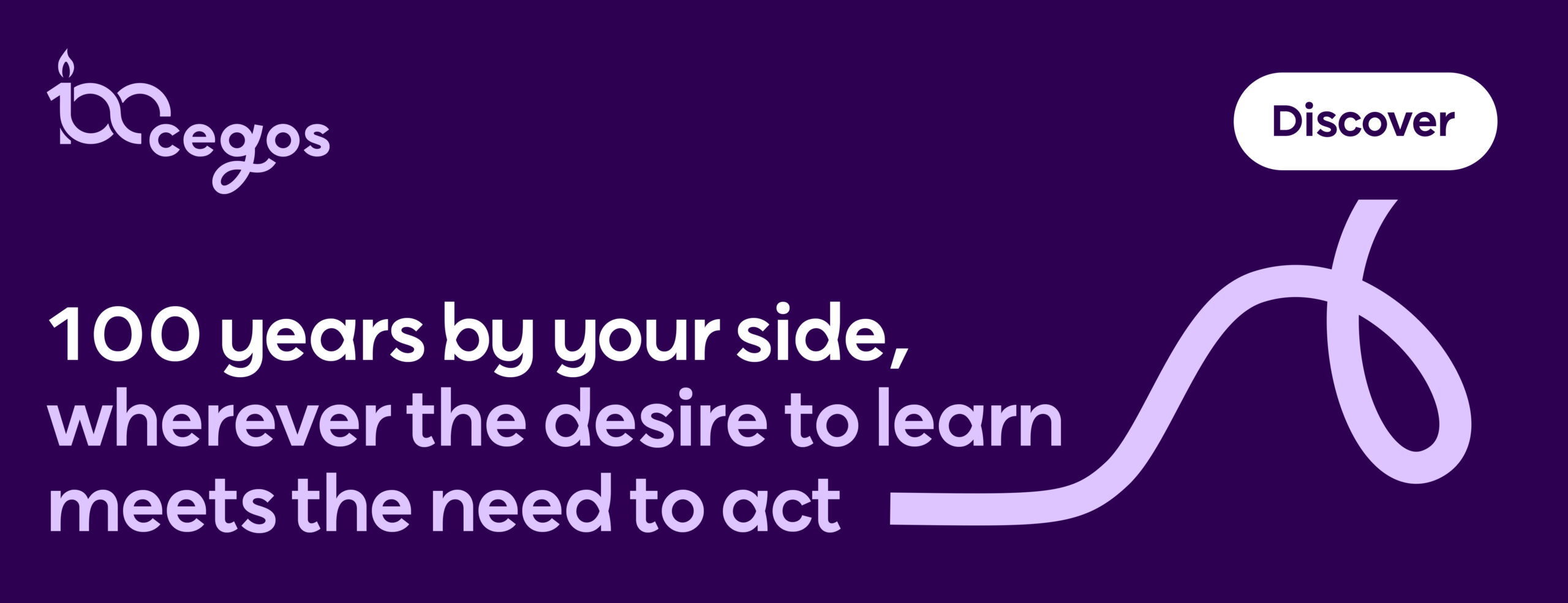
Unleashing the Potential of AI in Learning and Development

Generative AI is transforming Learning and Development (L&D) at an astounding rate. Thanks to the release of several high-profile text, image and sound generation tools, learning designers have been given a tremendous boost.
From enhancing creativity to saving hours or days working on curricula, AI is a real game changer. And it is helping enrich learning like never before. In fact, these are just a few of the ways AI is creating exciting opportunities for customised learning solutions for companies big and small.
In a recent Cegos “Global L&D Talk”, keynote speakers from three different companies – tech giant Schneider Electric, growing firm Focus Digital Technology Group, and Cegos Group – shared perspectives and experiences on the issue.
Here, we present key insights from their presentations.
A true learning revolution
AI stands as a powerful catalyst for change. It offers unprecedented opportunities for organisations to enhance employee skills, inspire innovation, and adapt to the demands of a rapidly evolving digital landscape.
Jean-Côme Renaudin, Global AI & Data Academy Director at Schneider Electric, provided a compelling story of how AI is driving sustainable transformation within the industry. Schneider Electric's commitment to decarbonisation and sustainability is underscored by its strategic integration of AI technologies to empower employees with the knowledge and skills needed to navigate complex challenges.
Jean-Côme emphasised the importance of democratising AI knowledge, making it easily accessible to employees at all levels of the organisation. Despite the abundance of content, the challenge lies in guiding individuals towards relevant resources and fostering a culture of continuous learning.
Everybody wins
“We train people on two levels,” says Jean-Côme. “We start with the employees. They need to understand the ‘why’ as well as the ‘how’ of using AI. They follow a learning path that is progressive. So, they can train on anything from a 30-minute module to a programme lasting several hours, depending on how deep they want to go.”
“When it comes to management, they are responsible for setting direction and driving impact. We inspire them to drive change on Artificial Intelligence within their scope and show them how to do it.”
Prompting for success
Through targeted initiatives – such as a ‘Promptathon’ competition – Schneider Electric cultivates hands-on experiences that enable employees to explore the practical applications of AI and drive innovation within their respective domains.
“It’s like a hackathon,” says Jean-Côme. “It’s an event where groups of people compete against each other to design prompts that can be useful for employee’s productivity or innovation, such as a sentiment analysis or a presentation. In our last promptathon, a group of judges assessed the entries and picked three winners. We ended up with 70 prompts, which are now in our prompt library, and save our people a lot of time. Through such initiatives, participants learn a lot about the power and limits of AI, which drives interesting discussion on new use cases”.
Virtual coaching
Furthermore, Jean-Côme envisions a future where AI becomes an indispensable companion in the learner's journey, offering personalised coaching, instructional support, and real-time feedback. By leveraging AI-driven platforms, organisations can create tailored learning paths that adapt to individual needs and learning styles, thereby maximising engagement and retention.
“The interface between human and machines is moving, generative AI becomes the new interface, the market is booming, with many startups that innovate faster than the traditional L&D vendors” he says. “My advice to you is experiment, train yourself, test the technology as it will continue to disrupt. What matters is to build experience.”
Gaps to be filled
Dr. Edwin Lee, CEO of Focus Digital Technology Group Pte Ltd, explored the transformative potential of personalised learning experiences facilitated by AI. He spoke about the need for custom-made solutions that cater to the diverse learning preferences and skill levels of employees. Through advanced learning analytics, organisations gain actionable insights into skill gaps and training needs. They can then optimise resource allocation and improve learning outcomes.
Edwin says there is huge scope for utilising the power of AI in learning. As well as creating content and personalisation, AI can boost coaching and even automatically grade assignments and give feedback.

He provided a fascinating use case, where alto-egos in the form of AI-generated characters and simulated voices were used to great effect in a virtual coaching environment.
“Some professionals are hesitant to enrol in coaching,” says Edwin. “Many potential clients – especially here in Asia – can be concerned their peers may think they are being coached because they are not good at their jobs. So, we thought, how about we anonymise the coaching by using an alto-ego character that speaks through a voice synthesiser. In some of our applied business cases, this has improved coaching uptake by 300%.”
By leveraging AI-driven conversational agents, organisations can overcome barriers to coaching uptake and provide employees with personalised support and guidance where they feel safe.
AI helps kids learn, too
Moreover, Edwin highlights the role of AI in revolutionising education through immersive and interactive learning experiences. Platforms like the ‘Eduverse’ offer children a virtual playground where they can explore, experiment, and learn in a safe and engaging environment.
By leveraging AI algorithms, educators can tailor learning experiences to individual needs, thereby fostering creativity, critical thinking, and problem-solving skills from a young age.
Human oversight
Finally, Hanelise Wagner, Digital and AI Transformation Expert at Cegos Group, spoke about the technical aspects of AI-driven training and the evolving role of human oversight.
“Despite the abundance of free resources, there's a growing demand for customised AI training tailored to organisational objectives,” Hanelise observes. “It's about addressing misconceptions and fears surrounding AI and promoting responsible use through experiential training.”
She emphasises the importance of human validation in ensuring the quality and value of AI-driven content. “Human oversight remains indispensable in validating AI-driven content and ensuring its alignment with organisational goals,” she stresses. “By encouraging experimentation and creativity, organisations can harness the full potential of AI to drive innovation and efficiency.”
Opportunities for rapid growth
The insights shared by each of the keynote speakers underscore the transformative power of AI in reshaping traditional L&D models.
By embracing AI-driven technologies and fostering a culture of continuous learning and experimentation, companies can unlock new opportunities for growth, innovation, and sustainability in the digital age.
If you would like to know more about how Generative AI can boost your L&D offering, contact Cegos today.










